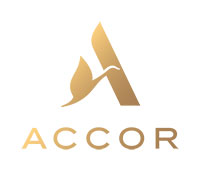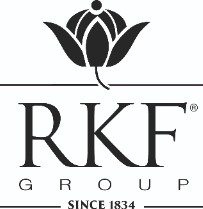Executive Report – January 2007: Your life in their brands
|
Executive Report – January 2007: Your life in their brands
|
Catégorie : Monde
Ceci est un communiqué de presse sélectionné par notre comité éditorial et mis en ligne gratuitement le 18-04-2007
From dawn ‘til dusk brands rule our daily lives, influencing our decisions and defining our experience of how we clean, dress and feed ourselves as well as how we relax and play.
Lynx or Imperial Leather? The Body Shop or
Estee Lauder? Starbucks Coffee or Caffé
Nero? Pret a Manger or Marks & Spencer?
Bacardi or Stella Artois? Silentnight or
Slumberland? Durex or Mates?
Whether we opt for one of these pairings, or
indeed an alternative, our brand choices are
important to us, even helping to shape our
identities in subtle ways, by reflecting how
we see ourselves, our tastes and preferences.
Above all, brands help us by simplifying the
decision-making process. Today’s consumer
can receive an estimated 3,000 marketing
messages during the course of a typical day
in our media-saturated society. In the face of such information overload, evidence
suggests that consumers are switching off
and traditional advertising is becoming less
and less effective.
A powerful brand can cut like a blade
through this tangled thicket of everyday
purchasing dilemmas. Brands reduce the
complexity of consumer choice, to perhaps
a handful of options, sometimes even less.
The importance of brand
The importance of brand is nothing new.
Indeed, attempts to brand consumer
products go back at least two centuries.
During the current decade however, we are seeing a shift towards what is sometimes
termed the ‘experience economy.‘
The experience economy represents a
deepening of the idea of service into the
creation of an emotional engagement
between company and consumer. The most
powerful mechanism for engaging customers
on this level is undoubtedly the brand.
A strong brand is a highly efficient piece of
coded information which instantly conveys a
range of desirable qualities, stories and
promises to the consumer. But how do
companies create such an intangible and
elusive entity?
The Fantastic Four
The strength of a brand depends on four
critical success factors: differentiation,
unique look and feel, consistency and
innovation. We call these the ‘Fantastic
Four‘, a name which underlines the superhero
qualities of these factors and the
dramatic impact they can have on any
business. Let us examine each of our brand
superheroes in turn.
Perhaps the single most important attribute of
a strong brand is differentiation. What does a
company do that is different from its
competitors? Has it managed to communicate
this difference to its customers? What makes
it stand out in the crowd of 3,000 voices clamouring for our attention each day?
Differentiation is the x-factor which separates
the strong brand from its weaker rivals in the
minds of consumers. For tourism, hospitality
and leisure operators the key differentiating
factor today revolves around experience.
This can simply be a unique kind of
experience that is hard to obtain anywhere
else in the market. For example, a travel
operator who specialises in a specific, perhaps
unusual destination or niche type of holiday.
However, in an ever more crowded and
competitive marketplace it is not always
easy to identify a unique proposition.
Differentiation may mean offering similar
core services to competitors, while giving a
fresh spin to the familiar by focusing on the
non-core elements of the experience.
For instance, an airline may offer unexpected
on-board experiences such as a massage therapist and bar area, or a casino may focus
more heavily on its restaurant and
entertainment facilities than its gaming tables.
Strong clear voice
Differentiation is closely linked to the
second attribute of a strong brand: unique
look and feel. This factor is the vehicle
which conveys the central brand message to
customers, and lets them know instinctively
which organisation they are dealing with.
This means developing a marketing
approach which embraces all channels of
communication, both offline and online,
across all contact points with the customer.
All of the words and images a business uses
to describe itself should be unique to that
business, and not be open to confusion with
those of its competitors. As well as look and
feel, it is also about creating a strong, clear
voice in the marketplace. This voice says
who a company is, what they do and how
they do it, all rolled into one.
Achieving consistency
The third critical success factor is consistency.
This is the bedrock of a strong brand. Do all
of a company’s customers receive the same
quality of experience all of the time? If the
answer is yes, that company is able to
generate trust, security and confidence in
its services.
Consistency requires constant vigilance and
attention to detail. This can be a major
challenge for many leisure and hospitality
operators whose business may include a
very large number of customer touch points.
A stay in an upscale hotel, for example, can
involve the customer in a multitude of
interactions with hotel employees. Such
complexity can make it harder for companies
to deliver a consistent experience.
Achieving consistency is becoming ever
more important in the age of blogging and
online customer reviews. In the offline world
of the past, one disgruntled customer might
complain to a small group of friends or
colleagues. Today’s wired consumer is able
to spread bad news to thousands of
potential customers in a matter of minutes.
Continual innovation
The Fantastic Four is completed by
innovation. A strong brand must constantly
seek to improve the customer experience.
This means the willingness to invest in the development of new ideas, products,
services and technologies. Customers in the
experience economy are more easily bored,
or jaded with the uninspiring and
unpredictable. The most successful brands
are not simply satisfying existing demand.
Through continual innovation they are
anticipating and even creating new demand
which did not previously exist.
Understanding the Fantastic Four enables any
consumer-facing company, regardless of
sector, to grow their business by attracting
and retaining customers, increasing customer
referral rates both off and online, and by
raising their level of market penetration.The creation of a strong brand is also the key
to commanding a price premium.
Ultimate payoff
Properly managed, a strong brand can help
to create a sense of pride amongst those
employees who are central to its successful
and consistent delivery. The ultimate payoff
is the building of strong, lasting
relationships with customers, and the
formation of real personal loyalty which
impacts directly on the bottom line.
Differentiation, unique look and feel,
consistency and innovation. What business
in today’s world can afford to ignore them?Consider their opposite numbers. Similarity,
uniformity, inconsistency and stagnation.
We could call this unappealing quartet the
‘Feckless Four!‘ No successful brand would
be seen dead in their company.
Case study: Travel Counsellors
Deloitte’s Brand Strength Assessment can
be successfully applied to businesses of all
sizes from global corporations to small,
localised operations.
Travel Counsellors began life with turnover
of around half a million pounds in 1993.
Since then it has grown to become one of
the UK’s largest independent travel
companies, with current sales of over
£175 million. The company now employs
over 120 head office staff and has 665 selfemployed
homeworkers in the UK &
Ireland. It has also expanded into the
United States and the Netherlands, soon
to be joined by Germany.
Differentiation
The brand is constructed around a unique
selling point: providing customers with
expert travel advice, and selling them tailormade
holidays in the comfort of
their own homes, via telephone, email or
home visit. The other key differentiator is
the independence of the brand – the
company is not tied to any specific
tour operator.
Faced with the decline of the high
street travel agent, and the rise of
Do-It-Yourself Internet travel booking,
Travel Counsellors bucked the trend to
focus on high quality personal service.
Consultants work from home and have
an unusually high average of 18 years
travel industry experience.
Unique look and feel
Travel Counsellors has a distinctive logo,
and a marketing message which conveys
an image of personalisation and friendly
professionalism.
However, we believe that the group can
improve further in this area. A customer
who walks into Starbucks would know
instantly they were in a Starbucks from the
look and feel of the place, even if they did
not see the brand logo. Travel Counsellors
has not yet achieved this high benchmark
of unique identification.
Consistency
Travel Counsellors places a heavy emphasis
on high quality service across its entire
customer base. A committed workforce is
seen as critical in delivering this consistency,
and the group seeks consultants “who
believe in going the extra mile for their
customers each and every time.” Travel
Counsellors’ figures indicate that their
(commission-based) agents are earning
“substantially more on average than homebased
agents working for other companies.”
The level of consistency achieved across the
company’s workforce is demonstrated by
very high rates of repeat business – an
average of around 60% per counsellor.
Innovation
Travel Counsellors constantly seeks to
improve both the experience of its
customers and its employees, often
focusing on technological innovation.
The company has recently launched e-tc, a
customer e-zine featuring clickable webcasts
on travel topics and destination news, as well
as features by respected travel journalists.
The company has also introduced TCTV, a
weekly webcast unique in the UK travel
sector, broadcast from its head office,
which allows the management team to
motivate and train agents remotely.
The introduction of the Customer Contact
Centre in early 2006 allows all counsellors
to manage and market to their personal
customer database.
The next phase of development will mean
that if an existing customer phones an
individual counsellor, their personal details
and previous booking information will
automatically appear on the screen before
the call is even answered.
Measuring success
In October 2006 the group was nominated
Best UK Travel Agent in the prestigious
Guardian/Observer Travel Awards voted for
by over 15,000 readers. On quality of
service, Travel Counsellors scored an
impressive 99.29%, the highest total score
of any company in the awards.
Travel Counsellors was the winner of the
Queen’s Award for Enterprise in 2003, and
the winner of the technology in business
category of the 2005 Confederation of
British Industry (CBI) Growing Business Awards.
|
|





